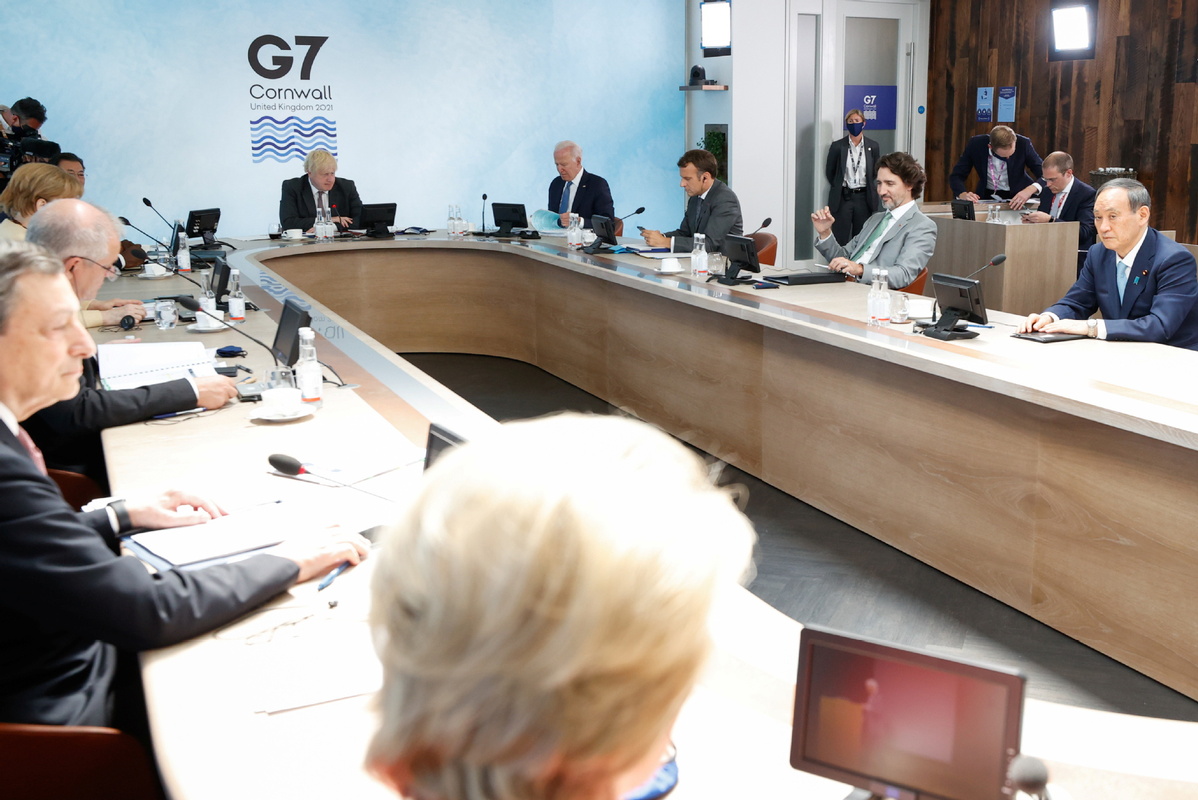Washington's Cold War mindset leads G7 astray: China Daily editorial
chinadaily.com.cn | Updated: 2021-06-14 19:44

There has never been such a push to adopt a tougher approach to deal with China. Judging from the final communique of the G7 Summit in Cornwall, the United Kingdom, the first face-to-face meeting of the G7 leaders was less about containing the novel coronavirus pandemic, combating climate change and boosting global economic recovery and more about targeting China based on the same old contrived charges of human rights abuses and forced labor in the Hong Kong Special Administrative Region and the Xinjiang Uygur autonomous region.
The Cornwall summit was supposed to be about reaffirming G7 solidarity following four years of damaging "America first" policies of Donald Trump, coordinating response to the pandemic, and adjusting to a post-COVID-19 world, yet the communique, titled "Our Shared Agenda for Global Action to Build Back Better" released on Sunday, blames China and Russia for all the ills afflicting the developed world.
Perhaps the group of developed countries is under the illusion that the world is led by its diktats. No wonder some of the G7 countries wanted the communique to declare a "new Cold War". In particular, the United States would have preferred the communique to be sharper in its anti-China rhetoric, but the other members of the elite club saw reason in preventing a confrontational approach from becoming the G7's collective stance against China, for the moment at least.
The differences between the US and the other G7 members, as the summit exposed, are not limited to technical issues such as the approach to China. They are rooted deeper in their outlooks on global governance, and the different understandings of multilateralism.
"America is back in the business of leading the world", claimed President Joe Biden, but after four long years of the disruptive Trump presidency, and with considerable political uncertainty lingering at home, his claim appears premature, especially since not much seems to have changed in the new administration's foreign policy.
Aside from the jokes shared and the pats on the back, the richest countries in the world still have a lot to straighten out to rebuild the past intimacy that was lost during the Trump administration, and could be damaged again in a feared Trump comeback. For one, the elite group needs to emerge from its delusional slumber and accept the reality that all countries, rich or poor, big or small, are equal and the affairs of the globe should be guided by the UN Charter, and not decided by a small clique.
The G7 would do better to focus its attention on resolving the real issues facing the world, that is, containing the pandemic by ensuring equitable distribution of vaccines, fighting climate change and leading the world out of economic uncertainty, instead of targeting China.
























